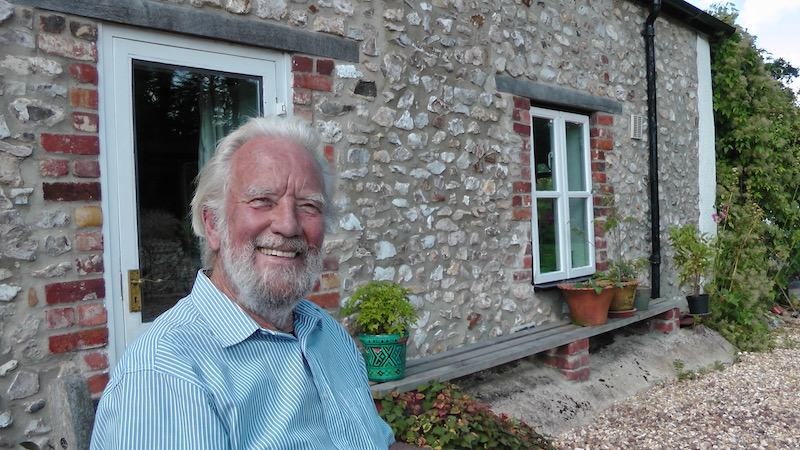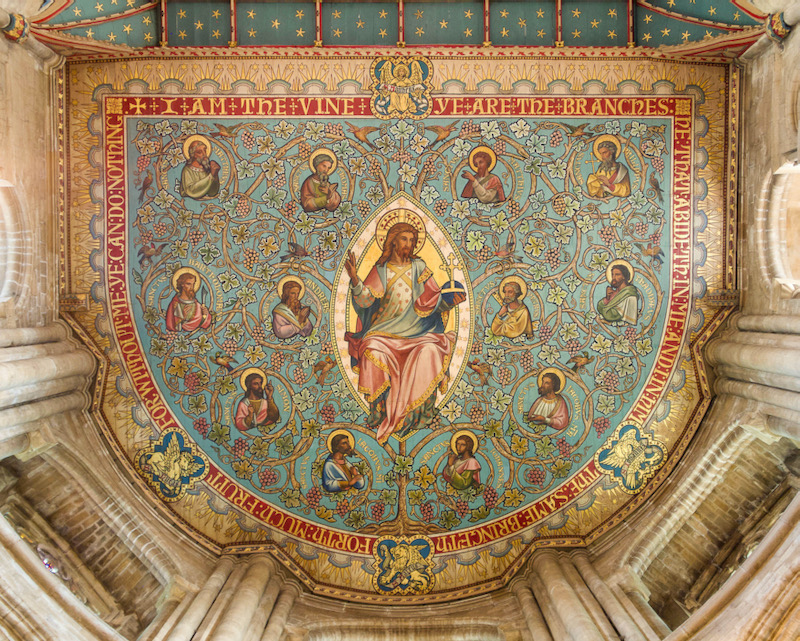‘Home is where your heart is’ is no less true for being a cliché. Homelessness is the most painful condition of the human heart because it is tantamount to being loveless. A ‘loveless home’ is almost an oxymoron: home is (or should be) where we can let our masks fall, our figures flop, and our false smiles fade. And, of course, for good or ill, what happens at home reverberates throughout the rest of our lives.
In the Old Testament, there’s no more potent symbol of stability, security, peace and belonging – home, in other words – than the vine and the vineyard. Along with olive trees, vines require settled conditions. Both take a long time to mature and both put down deep and wide roots, if given freedom to grow. But with time and patience and careful tending, both yield their wonderful fruits, the staples of both a physically healthy and spiritually cheering diet: wine, “which rejoiceth the heart”, as the psalmist says, and olive oil, for the body both balm and fuel.
So central to civilised existence and symbolic of peace and safety were the vine and the olive tree that their destruction was nothing short of a disaster. If you wanted successfully to lay siege to a city, you first demoralised its citizens by destroying their vines and olive groves. Now in time Israel, God’s people, came to be referred to as the vine of God. The psalmist speaks of their liberation from slavery as God bringing a vine out of Egypt; equally, the destruction of vines became a poignant image for national calamity: the same psalm speaks of a boar ravaging the vineyard of the Lord. (The Medici Pope, Leo X, had this graphic image in mind when, in 1520, he issued his bull, Exsurge Domine, condemning Martin Luther: “Arise, Lord…for foxes have arisen seeking to destroy the vineyard whose winepress you alone have trod…The wild boar from the forest seeks to destroy it.”)
All these images of security and belonging come together in this gospel, where Jesus speaks of himself as the vine. No one who first 2 heard or read this would have doubted that he was pointing to himself as the fulfilment of God’s promise to give Israel a home: he himself, rather than a geographical location, was Israel’s home, the place where the heart of God’s people would finally find rest. He makes this clear by repeatedly using – ten times in the space of six verses – a richly evocative Greek word, meaning ‘to abide’ or ‘to dwell’ or, even better, ‘to make a home’. (The original Jerusalem Bible translation did a better job here than most of the others: instead of “abide in me as I abide in you”, it had “make your home in me, as I make mine in you”.)
What’s astonishing about this is its reciprocity: it presupposes that he has already made his home in us. This is the mutual love of equals, which is the very essence, according to Aristotle and Aquinas of friendship. Later in this same discourse, Jesus makes it explicit: ‘I call you friends, not servants.’ Here, then, John is making it crystal clear that the goal of God’s creation, the point and purpose of his Incarnation, and the rationale of our Redemption is the sharing, through and in Christ, of God’s life in friendship. Friendship is what is restored to us by his life, death and resurrection. Heaven will be an endless life of perfect friendship. And even while still here on earth, God’s friendship, like all true and virtuous friendship, opens our hearts wider and wider, to overflow in love for others. That is what he means by the “bearing fruit” that is made possible by our friendship with him. And finally: unlike the other gospels, John’s contains no narrative account of the Eucharist. Instead, he gives us an account of its meaning by showing us its implications here and now for our lives. He shows us Jesus washing his disciples’ feet and telling them (and us) to do the same: as he loves and serves us, even to the point of laying down his life for us, so we are to do the same.
The unavoidable conclusion is that we participate in the celebration of the Eucharist fully only when it is issues in a life of generous and joyous service, like his.



 Loading ...
Loading ...
What do you think?
You can post as a subscriber user ...
User comments (0)